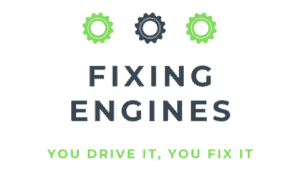Here is a common scenario that cannot go unnoticed – the inability to put a vehicle into parked. Time after time, as cars and trucks age and pack on miles, issues arise as the vehicle cannot functionally operate.
One of the issues is a vehicle that cannot stay parked after the car is turned off. At first, this might be a temporary issue, with the problem coming to fruition from time-to-time. Then, more time passes, as the vehicle cannot park at all.
Not only is this frustrating to the typical driver, but this creates a dangerous situation for the driver, the pedestrians, and the drivers surrounded by the vehicle.
When a vehicle does not go parked, there is likely a problem with the transmission of the vehicle – diagnosed by checking the transmission cable. If it isn’t the cable, it might have to do with the shifter mechanism. If it isn’t either one of them, the problem might be with the transmission itself.
Be sure to rule out the easiest and least expensive fixes first.
Transmission Cable Issues
The transmission cable (also known as a shifter cable) puts the vehicle into the correct gear. It moves by using the shift selector and usually has one cable that runs from the shift selector to the transmission (if the vehicle has a standard/manual transmission, then there are two shifter cables).
Often, vehicles are seen to have the shifter cable stretched out excessively. One obvious sign of this is when the gear shifter does not feel firm and locked into place. The shifter itself will feel loose, thus allowing for gear slippage.
Another sign is when the gear does not line up with the exact gear. For example, if the car is designated in reverse, but the car is in neutral, the car’s gearbox is not calibrated. This proves to be the common transmission cable symptoms.
The cost to replace the transmission cable itself is a total of $250-$300. The part itself costs around $120, and the labor is about $140-$180 (labor time should be about an hour- between diagnosis and the solution).
Shifter Mechanism Issues
The gearshifting mechanism in a manual vehicle (or the gear selector in an automatic vehicle) is simply a component of the transmission that allows the driver to operate its functional gears. In an automatic vehicle, the shifter almost always has four essential gears- park, reverse, neutral, and drive.
In a manual vehicle, there are individualized gears (ranging from first to fourth, fifth, and sixth in most vehicles); however, there isn’t a designated “parking” gear, so the driver is encouraged to leave the vehicle in first gear while turning the car on and off.
For automatic vehicles, the main reason that a vehicle cannot leave the parking position is due to the shift interlock. The quick solution is to unjam the gear selector manually by taking apart the gear selector. Although it sounds complicated, there is a shift lock compartment located on the gear shifter in most cars. This is usually a quick fix.
Another problem could be that there is too much down-pressure on the parking gear. This results in the inability to park the vehicle because of an overload of force on the vehicle.
It is highly recommended for vehicles with higher mileage and older than 10 years of age to engage the parking brake before the vehicle is put in parked. This will save the vehicle’s parking brake in the long run.
The cost of repairing a loose shifter linkage is minimal. If the driver is handy, it would cost nothing to do it on their own. If the vehicle is better off at a mechanic’s shop, it would cost around $50-$70 to fix (no more than half an hour’s worth of work).
Transmission Issues
The transmission itself is a complex component to a vehicle, giving drivers a headache to worry about and giving mechanics a hefty and burdensome project. Basically speaking, the transmission is the component of a hardly ever broken vehicle unless there is a definite issue with it, or it is being replaced for a new one.
If the solution is not apparent with the first two remedies, it is likely to be the transmission’s fault for why the car will not stay parked. There are plenty of symptoms of a bad transmission.
The shifts themselves are delayed or missing gears, the engine is revving high (which is known as slipping), there could be transmission fluid spewing out or burning (which there is usually a transmission dipstick, which is best to smell as a test of the problem), or even that the vehicle does not have any power.
In these cases, mechanics will diagnose the vehicle with a code reader to pinpoint the transmission issue. Sometimes, it is best to replace the whole transmission because between the cost of labor and parts and the success rate of fixing the issue, the vehicle will cost thousands.
Should You Fix it Yourself or Have Someone Look Into It?
There is a quick way around a parking gear malfunction. If the car has an emergency brake, engage it. This will allow the vehicle to stay still (whether on a flat road or a hill). However, this solution is deemed to be a temporary fix and is not recommended as a long-term solution.
Diving deeper into the root of the issue depends on how knowledgeable one is working on automobiles. If they are good with their mechanical knowledge and have an abundance of tools, it is best to fix the shifter cable and shifter mechanism issues to avoid high labor costs.
If the vehicle needs a diagnosis or the vehicle is known to have a transmission issue, it is probably the driver’s best interest to pay for the vehicle to be completed the right way.
How Much Should You Expect to Pay?
This is a question that has a decent amount of variables. If the issue is the transmission-shifter cable, it is only the part’s cost and if the driver decides to pay for labor.
If the issue is the shifter mechanism, it should cost no more than $50 from a good mechanic (or free of charge if the driver is doing it themselves). If the issue revolves around the vehicle’s transmission, the repair cost can range from a few hundred dollars to over a few thousand dollars.
If the transmission is unrepairable, the cost of buying a transmission is all over the place, and installation will be dependent on the mechanic’s shop’s hourly rate (which can range from $75-$250 an hour, and the work can take 4-16 hours).
Clutches (for manual vehicles only) typically are the least expensive transmission problems, but they even range from $500-$1200 jobs if a mechanic provides the work.
Final Thoughts
Stating the points above, it is always best to get valuable insight from a trusted and certified mechanic. Whether the issue is small as unlocking the shifting block straight from the vehicle’s shift selector to an unrepairable transmission that costs thousands, it is always best to get the issue diagnosed and decide on what the next steps should be.

